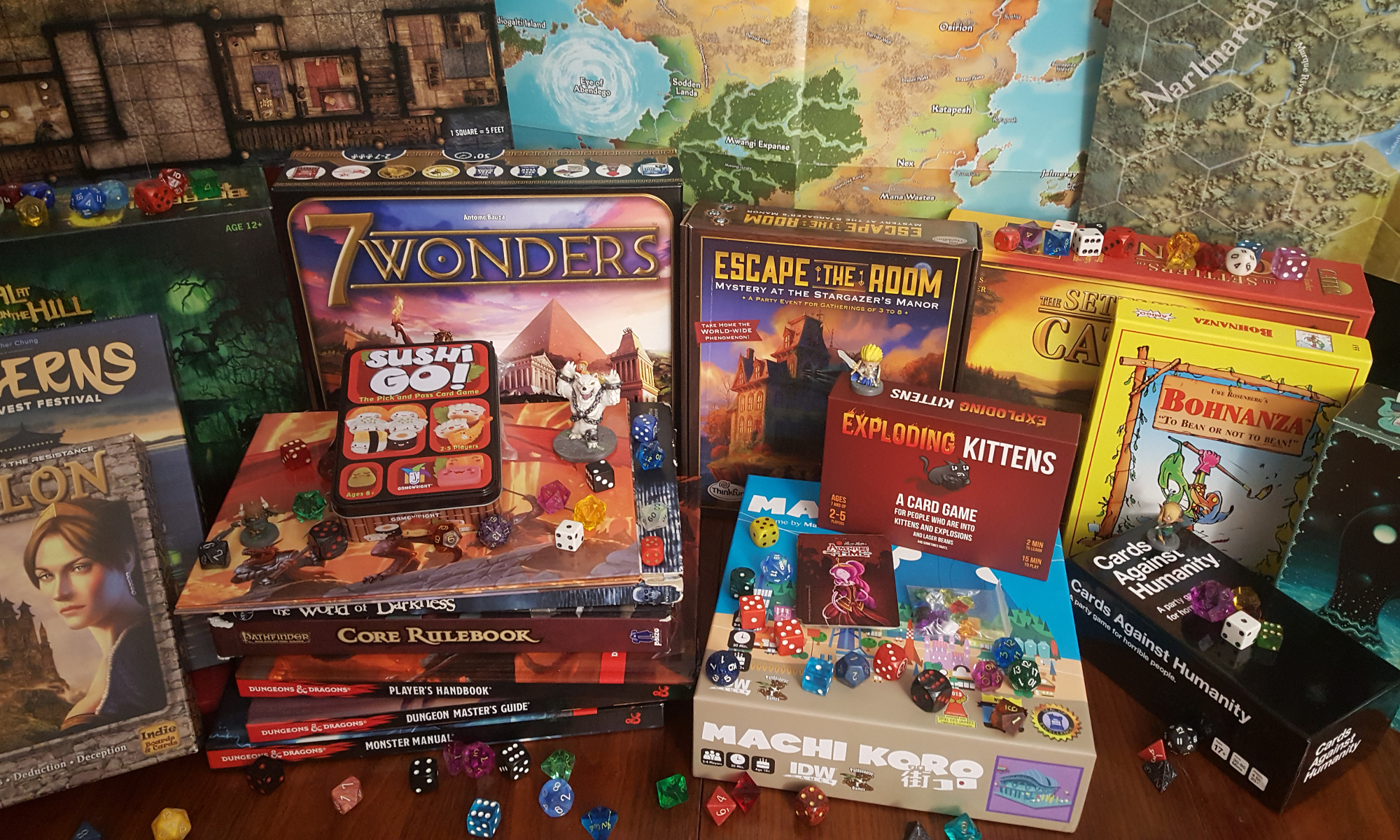Design philosophy changes with time. You can see this in advertising, in clothing style, in food (consider the truly incredible inedible Jell-O nightmares of the 1950’s) and, most pertinent to this podcast and its blog, in gaming. In today’s Save Vs. Rant, we’re going to break down the differences between the Old School and New School approach to RPG gameplay and design.
In today’s blog, I’d like to get philosophical about the purpose of games. In today’s podcast, I touched on the idea of games as being an expression of Maslow’s hierarchy of needs, and in this blog post I hope to expand upon this. The hierarchy of needs is a psychological (and, to a lesser degree, sociological) concept wherein in order to properly satisfy needs that are “higher” on the hierarchy, needs “lower” on the hierarchy must be satisfied.
One thing I want to stress is that being “lower” on the hierarchy doesn’t mean that a game is somehow worse or more banal than another, only that individuals playing those games are scratching a different metaphorical itch by playing them. In the same way that we recognize various flavors of fun (and we could spend days cross referencing them all with the needs on the hierarchy) without labeling one as “better” or “worse” than another, all needs exist to be satisfied, and games that help us to do so are beneficial, regardless of how comparatively simple or advanced those needs are.
Our most basic needs are physiological – we need to eat, drink, breathe, sleep, regulate our temperature and not be poisoned, on fire, or otherwise compromised. Because of this, the first games we play as small children are about this. Tickling, which can be seen as a form of game, is a sort of training in how to defend your most vulnerable parts (the armpits, stomach and sides below the ribs being the most common locations for individuals to be ticklish). We also play with our food, which sounds like a joke, but is genuinely a way of becoming more comfortable and familiar with what we eat. Children arrange their food in pleasing ways and eat things in an order that maximizes their enjoyment. Children experiment with holding their breath and keeping themselves awake. We explore the limits of our physiology as a sort of game – one we tend to outgrow fairly early in life.
Once we have our basic physiological needs satisfied, we have our safety needs, which tend to be more abstract. The most basic idea of what safety needs entails is that we need to know that not only are our physiological needs met now, but that they will be met in the foreseeable future. To this end, we live in shelters, work jobs, get mortgages and stock our refrigerators with food. We heat our homes and buy big fuzzy comforters for our beds. We learn what things not to eat and what kind of behaviors make us sick. The desire for our safety needs to be satisfied is manifested in games that require gathering, organizing and pattern recognition. In a sense, games like Mancala, Hi-Ho Cherry-O, Memory and even Monopoly appeal to this aspect of our psychology, giving us the opportunity to stimulate and hone our survival skills by simulating conditions of scarcity or occlusion. Gamification of survival activities has also been a common source of rhyming phrases throughout history. Many people know the rhymes “leaves of three, leave it be” and “red on yellow, kill a fellow, red on black, throw it back” and similar phrases meant to be handy mnemonics for information that could, conceivably, be vital to survival.
A lot of hack and slash RPGs are, in a sense, elaborate survival plays wherein we have to manage resources such as hit points and magic items, and assess risk in the form of random chance vs. comparative difficulty and risk/reward ration of various adventuring activities.
Above our safety needs lies our need for social belonging. This is where we get into games as social activities. While even playing a friendly game of tic-tac-toe can satisfy this by dint of social interaction, social games like Cards Against Humanity, Apples to Apples and storytelling style roleplaying games are great examples of games that satisfy these needs.
The next tier on the hierarchy of needs is self actualization, which encompasses a great many things. Among them are ideals of creativity and deep introspection. The need for self-expression and exploration. Needs that have nothing to do with satisfying physiological or social needs per se, but with exploring everything we can be and experience.
Prior to the mid 2000’s, few games even attempted to dabble in a sort of organized creative expression beyond such completely optional steps as, for example, writing a backstory or history, or illustrating a scene or character from a game. Some games dabbled in this, suggesting that such background elements were an important part of the game experience and tying mechanical benefits to them. However, the revolution in new-school RPGs is, in some ways, reflective of the desire to achieve more varied satisfaction from games.
Previously, the only individual who took part in actually creating the world, settings and scenarios of the game was the stoyteller / DM figure, who might take occasional input from the players, but ultimately was the sole arbiter of the world. Games in the early 2000’s such as Wilderness of Mirrors and the FATE System Dresden Files RPG game turn all in-game activities into storytelling opportunities, allowing players other than the storyteller / DM to have a say in what occurs. Some games, such as Microscope and Fiasco (both of which I am personally hesitant to call an RPG in the traditional sense) don’t HAVE traditional storytellers, instead being collaborative activities. While much of these games can reasonably be said to be socially satisfying, the creative outlet provided goes beyond a mere social exercise in storytelling to an opportunity for expression that satisfies a more abstract desire.
I have every confidence that games will continue to develop that test the limits of expression and even challenge the way we understand “games” entirely. While I’m not a sucker for truly avante garde dadist material, I do love seeing the limits of how we interact stretched and twisted in new and exciting ways, and games that make us reconsider the roles we take and the needs that gaming satisfies in our lives.

